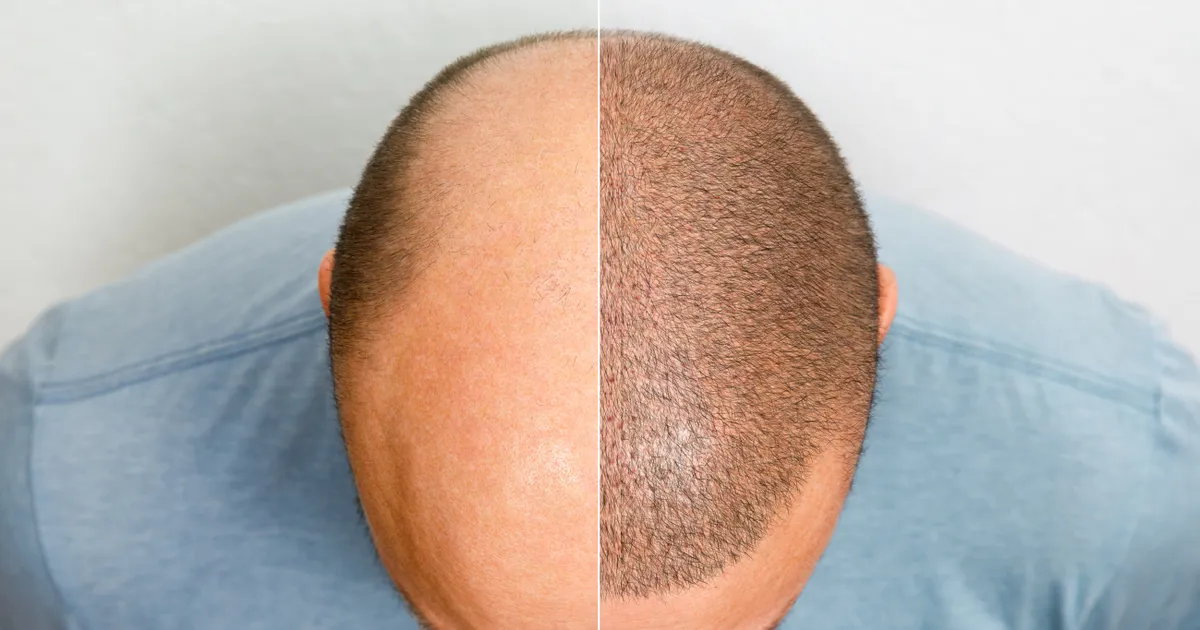In recent years, Turkey has emerged as a global hotspot for hair transplantation procedures. Curious to know what attracts patients worldwide? Start a search today to explore the advantages and challenges of hair transplants in Turkey.
Although Turkey is known for its blend of advanced technology and competitive pricing, prospective patients must also consider the risks involved. Is medical tourism right for you? Explore this intriguing possibility today!
 Shutterstock: Aleksandr Rybalko
Shutterstock: Aleksandr RybalkoQuality of Medical Facilities and Staff
Turkey’s medical tourism industry, particularly in the field of hair transplants, boasts some of the most sophisticated facilities globally. Many clinics in Turkey are equipped with cutting-edge technology and are staffed by experienced surgeons who specialize in hair restoration techniques. 1
These high standards contribute significantly to the high success rates reported by patients. Despite these promising factors, it’s essential to research and verify the credentials of both the clinic and the surgeon to ensure they meet international healthcare standards.
Cost-Effectiveness Compared to Other Countries
One of the most appealing aspects of hair transplants in Turkey is the cost-effectiveness. The average price of a hair transplant in Turkey is $3,500, which is significantly lower than in the USA or Europe, which can average around $12,000. 2 And there’s no compromise on quality.
This affordability is primarily due to the lower cost of living and operational expenses in Turkey. However, potential patients should investigate what is included in these costs, such as post-operative care and accommodation, to avoid unexpected expenses.
Cultural and Geographical Appeal
Undergoing a hair transplant in Turkey offers more than just medical treatment; it’s also an opportunity to experience a rich cultural heritage. Many patients combine their medical trips with a vacation, exploring historic sites and enjoying Turkish cuisine.
This aspect adds a unique appeal to the experience of getting a hair transplant in Turkey. However, while the cultural experience is a bonus, it shouldn’t overshadow the primary purpose of the visit – the medical procedure, which requires serious consideration and planning.
Communication and Language Barriers
While many Turkish hair transplant clinics cater to an international clientele and have multilingual staff, language barriers can still be a concern. Effective communication is crucial in medical procedures, and any misunderstanding can affect the outcome. 3
Patients should ensure that the clinic provides adequate language support or consider hiring a translator if needed. This aspect underlines the importance of thorough pre-procedure discussions and clear communication channels.
Aftercare and Long-Term Results
The success of a hair transplant doesn’t end with the surgery; aftercare is crucial. Many clinics in Turkey offer comprehensive aftercare services, essential for achieving the desired long-term results.
Patients should inquire about the aftercare process and ensure they understand the post-operative instructions. Additionally, researching the long-term results and patient testimonials of Turkish hair transplant clinics can provide valuable insights into what one can expect.
Travel Considerations and Logistics
Traveling to another country for medical treatment requires logistical planning. This includes understanding travel restrictions, arranging accommodations, and considering the time needed for recovery before returning home.
Patients should plan their trip meticulously, taking into account recovery time and any potential complications. Exploring online forums and resources can offer practical tips and advice from those who have undergone the procedure in Turkey.
Understanding the Risks and Potential Complications
Like any medical procedure, hair transplants in Turkey have inherent risks and potential complications. These may include infection, unsatisfactory results, or unforeseen reactions to the procedure.
Patients must research and understand these risks thoroughly, discussing them with their chosen clinic or surgeon. Seeking out unbiased online resources and patient reviews can aid in developing a realistic expectation of the risks involved.
Regulatory Standards and Patient Safety Protocols
Turkey’s healthcare system, particularly in the field of cosmetic surgery, adheres to certain regulatory standards and safety protocols. Patients considering hair transplants in Turkey should be aware of these regulations to gauge the level of safety and professionalism they can expect.
It’s important to verify that the chosen clinic complies with international health standards and follows stringent safety procedures to mitigate risks during and after the surgery. Engaging in online communities or forums where past patients share their experiences can provide insights into how these standards are upheld in practice, contributing to a more informed decision.
Ready For a Transformative Journey?
Hair transplants in Turkey offer a compelling blend of quality, affordability, and cultural experience. However, like any medical procedure, especially one conducted abroad, it requires thorough research and consideration. Encouraging further research and dialogue with experienced professionals and past patients online can be immensely beneficial in this journey.
Prospective patients must evaluate all aspects, from the qualifications of the medical staff to the logistics of travel and recovery. By doing so, they can make an informed decision, balancing the potential benefits with the inherent risks, and thus maximize the chances of a successful and satisfying outcome.
